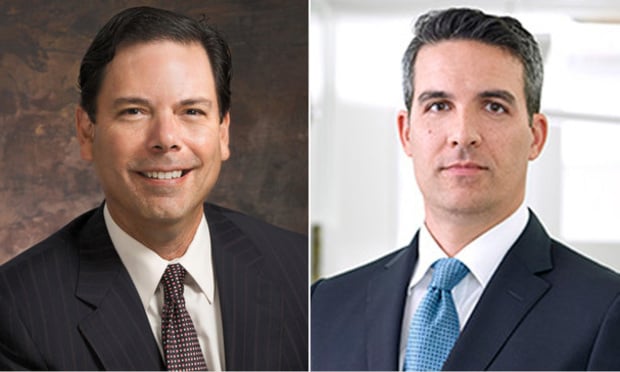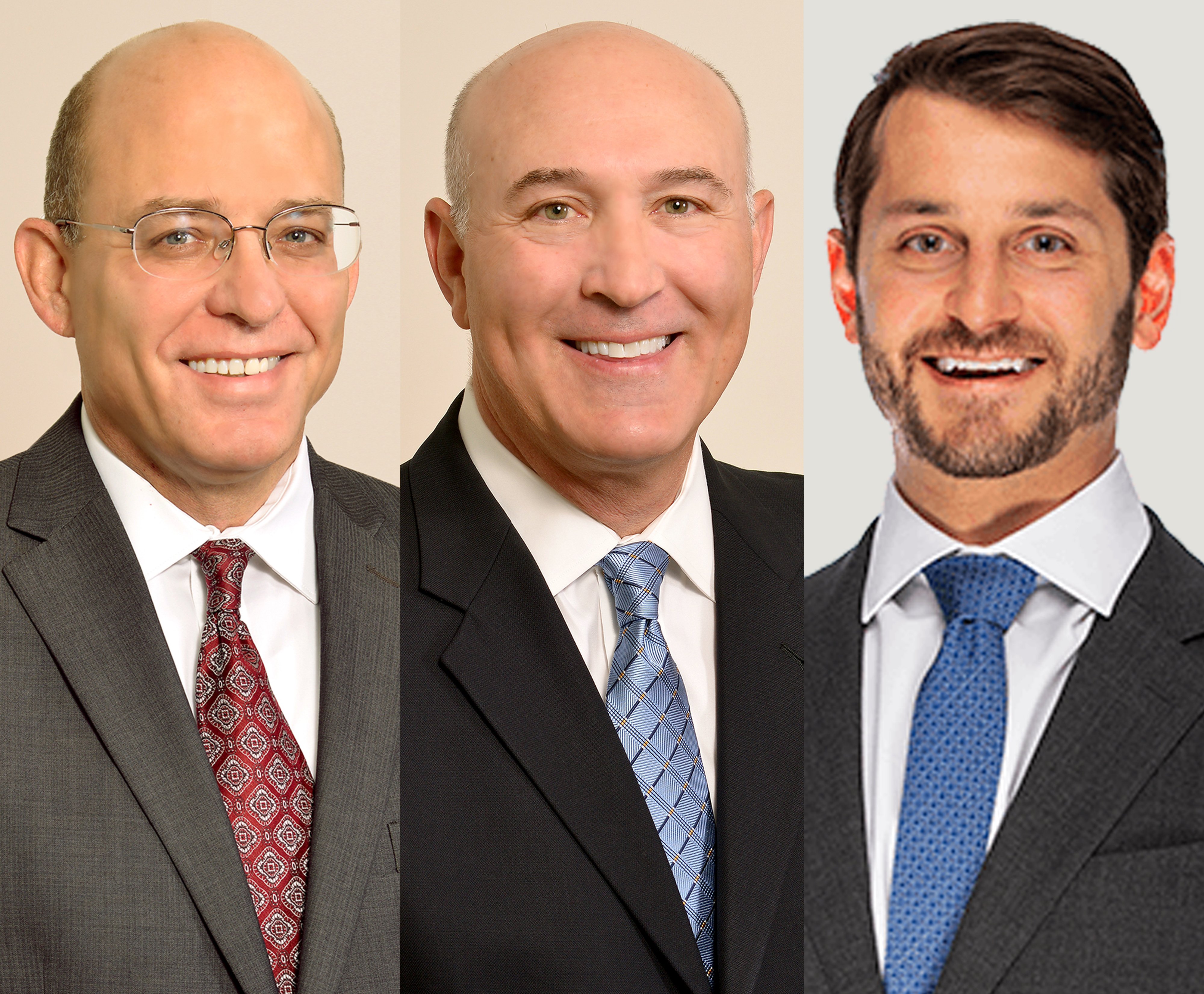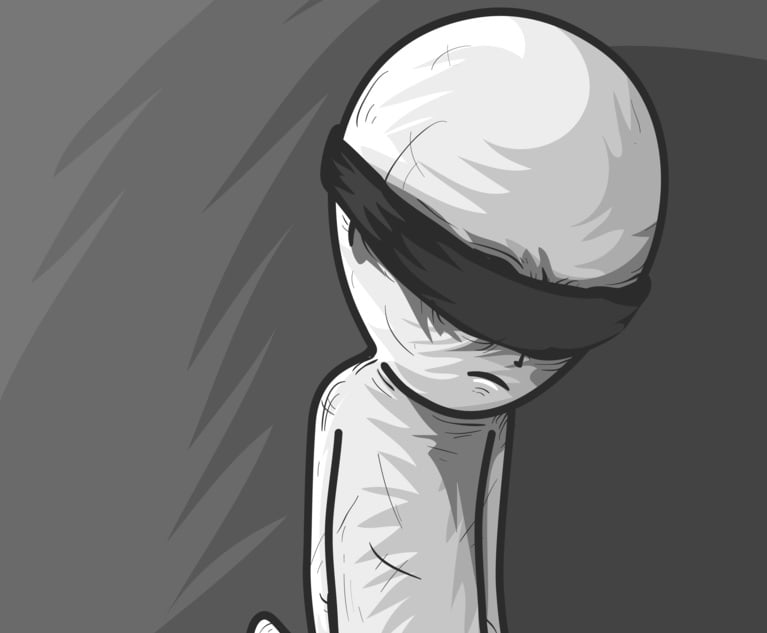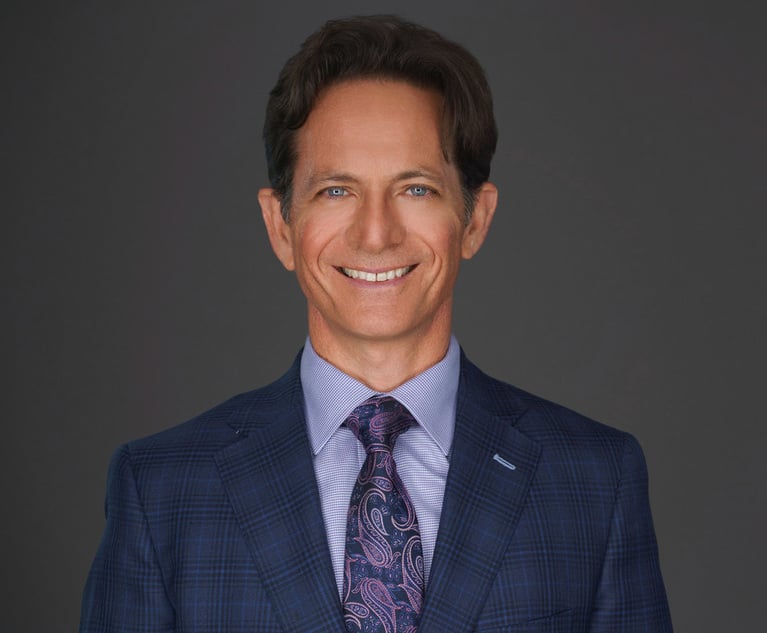Miami-Dade Lawyers Land $19.5M Verdict in Trademark Case Over Copycat Software
Christopher Spuches of Agentis in Coral Gables and Javier J. Rodriguez of Saul Ewing Arhnstein & Lehr in Miami handled a complex, three-week trial involving an alleged clandestine scheme and a mysterious IP address more than 5,000 miles away.
November 11, 2019 at 03:12 PM
8 minute read
 Javier J. Rodriguez of Saul Ewing Arnstein & Lehr in Miami and Christopher B. Spuches founding partner of Agentis. Courtesy photos.
Javier J. Rodriguez of Saul Ewing Arnstein & Lehr in Miami and Christopher B. Spuches founding partner of Agentis. Courtesy photos.
South Florida lawyers Christopher Spuches of Agentis and Javier J. Rodriguez of Saul Ewing Arnstein & Lehr joined forces to win a $19.5 million jury verdict for Coral Gables software company Kipu Systems LLC, which claimed a competitor ripped off its electronic medical records system by reverse engineering it.
It was a complex, three-week trial involving an alleged clandestine scheme and a mysterious IP address more than 5,000 miles away.
Kipu's cloud-based records system was unique when it launched in 2011, specifically tailored to addiction treatment centers, according to court pleadings. About 50 customers had signed up by 2013, when Delray Beach addiction treatment center Solutions Recovery Center LLC enrolled.
But something didn't seem right, according to Spuches.
"They asked a lot of odd questions. They had a lot of complaints we'd never heard before, and after about 35 days they said, 'We don't want to use it anymore,' " Spuches said.
The treatment center also never paid for the software's implementation, according to Spuches, who said it took time for that encounter to make sense.
" Fast forward about a year and a half later, one of our salespeople sees those guys from Solutions Recovery at a conference, and they're hawking a new EMR product," Spuches said.
It was called ZenCharts LLC, and the similarities seemed uncanny, according to Spuches. So Kipu checked its logs, which detailed who had accessed the system, when they'd entered and for how long. The first thing it noticed: One IP address featured heavily, originating from a small Bulgarian city.
"We investigated, and we discovered that the ZenCharts product was developed by a man named Yanko Karkalichev, who is a web developer who lives in a city called Plovdiv," Spuches said.
Also curious, according to Spuches, was that although Solutions Recovery had said it no longer wanted the software in November 2013, it had continued accessing the system until it was cut off in January 2014. Then in 2015 and 2016, the same IP address accessed Kipu's system using two customers' credentials.
'Serve him via LinkedIn'
Kipu sued in 2017, pointing the finger at ZenCharts and its owners, father-son duo Daniel and Sean Callahan, their business associate Richard Glaser and Bulgarian developer Karkalichev.
But when Karkalichev couldn't be served, the plaintiff's team employed an unusual tactic.
"We noticed that he had a very active LinkedIn page, and on the LinkedIn page he openly advertised that he was part of ZenCharts," Spuches said. "So we went to the judge and we said, 'We'd like to serve him via LinkedIn.' "
And it worked. Karkalichev received the summons and complaint via LinkedIn and later appeared at trial.
The defendants denied any wrongdoing, arguing Kipu's system was defective and unsuitable for their needs.
Discovery was a "slugfest" according to Spuches, who said he eventually resorted to obtaining documents from third parties. Spuches said the emails that emerged were "devastating," as they showed the defendants dissecting Kipu's terms of service and developing a secret EMR system while they were supposedly implementing Kipu's.
'Practically inconceivable'
Rodriguez handled testimony of experts for the plaintiff and defense, who compared the two systems for the jury. Though Rodriguez had never prized himself on being "a technical person," the trial turned him into an impromptu expert in computer software.
"All of the experts on both sides had extensive written reports that I had to really dive into," he said.
The plaintiff's experts claimed to have found undeniable evidence of copying.
Dr. Craig Rosenberg is a leading expert on user interface, which is what the user sees when they interact with a website. He demonstrated how a programmer can copy parts of a site's html source code and make deductions about how its database is structured by right-clicking and selecting "view page source."
"We feel that's why they were logging in all the time," Rodriguez said. "They were working their way through the user interface and they were reverse engineering our system.
Rosenberg focused on what he felt were the nine most egregious examples of copying in ZenCharts' user interface, displaying them side by side with Kipu's.
"Some of the information was literally word for word, even to the point of capitalization, and that would not happen randomly if you had two software developers independently developing a system," Rodriguez said. "Then in some areas where even Kipu had made a mistake, the same mistake was replicated in the ZenCharts system."
Rodriguez said Rosenberg found one sentence fragment in ZenCharts' system that appeared to have been incorrectly lifted from a full sentence in Kipu's system.
"Clearly, that was just sloppy copying," Rodriguez said.
Dr. Rajeev Surati specializes in back-end software, which includes everything users can't see, like databases, servers and how different fields interact with one another.
There are many ways to name a field in the backend, according to Rodriguez, who said "patient.name" and "Patient_Name" are two examples of the same entry. He said many areas of ZenCharts' database were identical.
"It's practically inconceivable that you would have a table that would have 41 fields, and all 41 fields are identical down to the last character," Rodriguez said.
Not about competition
ZenCharts denied copying and argued their product was nothing but healthy competition. But Spuches reminded jurors that the defendants had previously tried and failed to create an EMR system.
"We've got a good deal of competitors now, and that's fine. We're not suing them," Spuches said. "This is not a case about competition. It's a case about unfair competition."
ZenCharts also noted its system was written in a different computer language. But that didn't matter, the way Rodriguez saw it.
"It's kind of like if you read a book, and you're reading the book in English, and you copy it word for word but you write it down in Spanish," Rodriguez said. "You're still copying, even if you're using a different language, right?"
Jurors found the defendants had breached its agreement with Kipu and awarded $19.5 million in damages, a little less than the $28 million the plaintiffs sought.
Defense attorney Walter Boone of Balch & Bingham in Mississippi deferred comment to ZenCharts, which thanked its customers and legal team.
"Even if the outcome is not always perfect, we, as Americans, are proud of our legal system and the fairness it provides. While we respect the ruling of the jury, we do not agree with it and we intend to appeal," ZenCharts said. "While this is not our first setback, we will continue moving forward as we always have. You can continue to expect the trust, expertise and incredible product ZenCharts offers without interruption. Our employees will be standing ready to answer your call and we will continue to innovate and provide our customers with the best and most cost-effective product."
A defense verdict could have had far-reaching consequences, in Spuches' view.
"Anybody who creates a product, whether it's tech or anything else, it's their idea, it's something that they thought of," Spuches said. "And that's a big part of our capitalist system. If you allow other people to copy that without any ramifications, it will chill that type of entrepreneurial, innovative spirit."
Read the verdict:
Case: Kipu Systems v. Zencharts
Case No: 1:17-cv-24733-KMW
Description: Intellectual property, trademark
Filing date: Dec. 31, 2017
Verdict date: Nov. 4, 2019
Judge: U.S. District Judge Kathleen Williams in the Southern District of Florida
Plaintiffs attorneys: Christopher Spuches, Agentis Law, Coral Gables; Javier J. Rodriguez, Saul Ewing Arnstein & Lehr, Miami.
Defense attorneys: Charles Brumby, Geremy Gregory, Walter Boone, Kye Handy and Adam Israel, Balch & Bingham, Florida, Mississippi and Alabama offices.
Verdict amount: $19.5 million
More verdicts:
South Florida Lawyers Obtain $8.2M Verdict for Pedestrian in Catastrophic Crash
Miami Lawyers Land $15 Million Verdict Over Patient's Death From Alleged Hospital Bug
This content has been archived. It is available through our partners, LexisNexis® and Bloomberg Law.
To view this content, please continue to their sites.
Not a Lexis Subscriber?
Subscribe Now
Not a Bloomberg Law Subscriber?
Subscribe Now
NOT FOR REPRINT
© 2025 ALM Global, LLC, All Rights Reserved. Request academic re-use from www.copyright.com. All other uses, submit a request to [email protected]. For more information visit Asset & Logo Licensing.
You Might Like
View All
Million-Dollar Verdict: Miami Jury Sides With Small Business

Automaker Pleads Guilty and Agrees to $1.6 Billion in Payouts

'I've Seen Terrible Things': Lawyer Predicts Spike in Hazing Suits
Trending Stories
- 1Judge Pauses Deadline for Federal Workers to Accept Trump Resignation Offer
- 2DeepSeek Isn’t Yet Impacting Legal Tech Development. But That Could Soon Change.
- 3'Landmark' New York Commission Set to Study Overburdened, Under-Resourced Family Courts
- 4Wave of Commercial Real Estate Refinance Could Drown Property Owners
- 5Redeveloping Real Estate After Natural Disasters: Challenges, Strategies and Opportunities
Who Got The Work
J. Brugh Lower of Gibbons has entered an appearance for industrial equipment supplier Devco Corporation in a pending trademark infringement lawsuit. The suit, accusing the defendant of selling knock-off Graco products, was filed Dec. 18 in New Jersey District Court by Rivkin Radler on behalf of Graco Inc. and Graco Minnesota. The case, assigned to U.S. District Judge Zahid N. Quraishi, is 3:24-cv-11294, Graco Inc. et al v. Devco Corporation.
Who Got The Work
Rebecca Maller-Stein and Kent A. Yalowitz of Arnold & Porter Kaye Scholer have entered their appearances for Hanaco Venture Capital and its executives, Lior Prosor and David Frankel, in a pending securities lawsuit. The action, filed on Dec. 24 in New York Southern District Court by Zell, Aron & Co. on behalf of Goldeneye Advisors, accuses the defendants of negligently and fraudulently managing the plaintiff's $1 million investment. The case, assigned to U.S. District Judge Vernon S. Broderick, is 1:24-cv-09918, Goldeneye Advisors, LLC v. Hanaco Venture Capital, Ltd. et al.
Who Got The Work
Attorneys from A&O Shearman has stepped in as defense counsel for Toronto-Dominion Bank and other defendants in a pending securities class action. The suit, filed Dec. 11 in New York Southern District Court by Bleichmar Fonti & Auld, accuses the defendants of concealing the bank's 'pervasive' deficiencies in regards to its compliance with the Bank Secrecy Act and the quality of its anti-money laundering controls. The case, assigned to U.S. District Judge Arun Subramanian, is 1:24-cv-09445, Gonzalez v. The Toronto-Dominion Bank et al.
Who Got The Work
Crown Castle International, a Pennsylvania company providing shared communications infrastructure, has turned to Luke D. Wolf of Gordon Rees Scully Mansukhani to fend off a pending breach-of-contract lawsuit. The court action, filed Nov. 25 in Michigan Eastern District Court by Hooper Hathaway PC on behalf of The Town Residences LLC, accuses Crown Castle of failing to transfer approximately $30,000 in utility payments from T-Mobile in breach of a roof-top lease and assignment agreement. The case, assigned to U.S. District Judge Susan K. Declercq, is 2:24-cv-13131, The Town Residences LLC v. T-Mobile US, Inc. et al.
Who Got The Work
Wilfred P. Coronato and Daniel M. Schwartz of McCarter & English have stepped in as defense counsel to Electrolux Home Products Inc. in a pending product liability lawsuit. The court action, filed Nov. 26 in New York Eastern District Court by Poulos Lopiccolo PC and Nagel Rice LLP on behalf of David Stern, alleges that the defendant's refrigerators’ drawers and shelving repeatedly break and fall apart within months after purchase. The case, assigned to U.S. District Judge Joan M. Azrack, is 2:24-cv-08204, Stern v. Electrolux Home Products, Inc.







